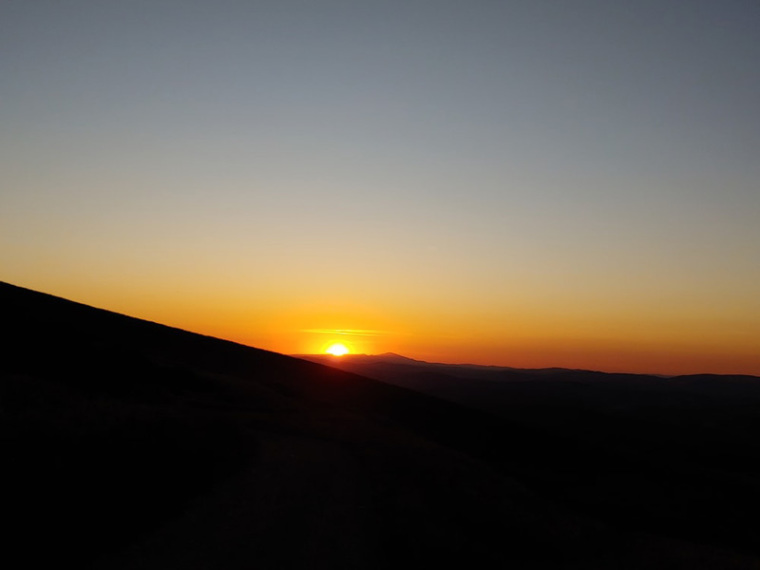
In 2021, Ramadan, the month of fasting, runs from 12/13 April to 13 May. Today, many Muslims worldwide are genuinely seeking God and are opposed to violence, seeking peace, and observing Ramadan as a means to demonstrate their devotion to Allah. Many do not know the Quran and are ignorant of the violence advocated in the Quran.
However, the situation is significantly different in Islamic countries where there are small populations of Christians.
Background
Ramadan is traditionally the ninth month of the Islamic calendar (which is a lunar calendar with 354 or 355 days in the year), determined from the sighting of one crescent moon to the next. It is the month in which the Quran was revealed to the prophet Muhammad. The Islamic calendar also determines when various religious festivals can be celebrated.
The observance of Ramadan is one of the five Pillars of Islam. The other four Pillars are Testimony of the Faith, Ritual Prayers, Almsgiving and Pilgrimage to Mecca. During Ramadan Muslims must abstain from eating, drinking, smoking and sex throughout the daylight hours between sunrise and sunset. It is a form of expressing submission to the will of Allah. Every evening they can break the fast in a meal called the Iftar.
The word Ramadan derives from an Arabic word meaning ’scorching heat’, or ‘hot month’, a state of being parched. It infers a heightened sense of piety, being thirsty for Allah.
The end of the Ramadan fast is celebrated as Eid al-Fitr, the “Feast of Fast-Breaking.”
Evolution of Ramadan
In pre-Islamic times, Ramadan was a month of fasting and peace, in which pagan Arabs would take a break from fighting and raiding. This tradition was so well established that caravans would transport their wares unarmed.
Breaking with tradition, Muhammad exploited Ramadan. He raided unarmed caravans, reportedly with Allah's permission, to acquire booty for his struggling Muslim community. Consequently, Ramadan became a time not only for prayer and fasting, but also for Islamic advance through violence.
For example, it was during Ramadan that Muslims triumphed in many of their battles, such as the battle of Badr in 624, the conquest of Mecca in 630, Andalusia in 711, and Al-Zallaqa in 1086 in the Muslim invasion of Christian lands in Europe.
For many Muslims around the world, there is a close connection between fasting and jihad. Many imams teach that fasting is a powerful means to prepare the soul for jihad. It instills obedience, devotion, resilience and endurance, which are the virtues of the jihad fighter that allow him to vanquish his enemies.
Consequently, Christians are vulnerable during Ramadan
Anyone who does not submit to Allah is the enemy of Islam. It is believed that on Ramadan, Allah grants fighters special strength and those who gain martyrdom during the month of Ramadan are doubly rewarded in Paradise.
Muslim leaders often use this time of the year to incite violence and persecution against Christians living in their lands for not submitting to Allah. During Ramadan, Muslims are especially beholden to protect the sanctity of the Muslim holy places and keep the infidels from “desecrating” or threatening them.
In Iraq, Islamic State has directly threatened Iraq's churches, promising attacks to 'remove their crosses' as in 2014. In Syria, a resurgent Islamic State is poised to launch a Ramadan offensive from its bases in the mountains of the Central Syrian Desert.
Meanwhile, analysts suspect that Azerbaijan and neo-Ottoman Turkey are preparing to launch a military campaign to seize control of territory in Armenia's southern Syunik Province.
One Egyptian believer said, “As much excitement as the Islamic holy month brings to Muslims, it does carry a great deal of burdens and concerns to the Christian community.
“It is a very long 30 days during which Christians in schools, work or public spaces will receive harsh looks and verbal harassment because of their faith. There have even been some cases where Christians have faced physical violence because they were caught eating their lunch by their fasting Muslim co-workers or neighbours.”
“If one part suffers, every part suffers with it; if one part is honoured, every part rejoices with it.” – 1 Corinthians Chapter 12, verse 26 (NIV)
Let us be diligent in prayer
· Praise God, that the arm of the Lord is not too short to save, nor his ear too dull to hear. (Isaiah chapter 59 verse 1).
· Praise God, that His Spirit is moving powerfully within Muslim communities.
· Pray that the Iraqi government can secure Iraq’s churches in the wake of direct threats from Islamic State and may it follow through with the words of support for churches.
· Pray that all anti-Islamic forces operating in Syria cooperate to end Islamic State.
· Pray that God would oversee the preservation of Iraq’s remnant Christians and Syria’s suffering church, protecting and building them up.
· Pray that God would intervene in the South Caucasus to enable a breakthrough that will preserve the territorial integrity of Armenia; and because politics, weapons and alliances do fail, may the Church exalt, glorify and place her trust in Yahweh Sabaoth, that the battle might be turned back at the gate (Isaiah 28:5,6).
· Pray that the Holy Spirit will move with transforming power this Ramadan, graciously revealing Christ to Muslims - those who seek him and those who don't - in answer to the prayers of many.

Aira Chilcott is a retired secondary school teacher with lots of science andtheology under her belt. Aira is an editor for PSI and indulges inreading, bushwalking and volunteering at a nature reserve. Aira’s husband Bill passed away in 2022 and she is left with three wonderful adult sons and one grandson.
Aira Chilcott's previous articles may be viewed at http://www.pressserviceinternational.org/aira-chilcott.html